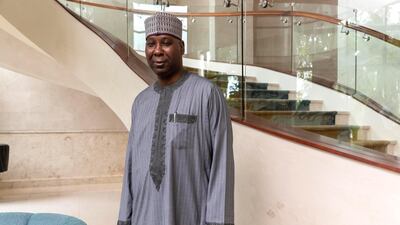Tijjani Muhammad-Bande’s career has spanned academia and diplomacy.
He taught in his homeland of Nigeria, having obtained a PhD in political science from the University of Toronto in 1987 and studied in Boston in the US.
Prior to his appointment as president of the General Assembly, Mr Muhammad-Bande, 62, was Nigeria’s permanent representative to the UN.
He is no stranger to the inner-workings of the international forum. In 2016, he was vice-president of the 71st session of the General Assembly. The theme of the session was the sustainability of development.
The former professor has talked about wanting to reform the Security Council, making it a more democratic and efficient arm of the UN.
The 15-nation body has struggled to pass meaningful resolutions in the past few years, with permanent members China, Russia, France, the US and UK often at loggerheads.
“We have to have the reform, it is a democratic process. We have to continue and not lose sight of the goal, which is to have fair, just and quick reform of the Security Council,” he said.
In his first appearance as General Assembly President last June. Mr Muhammad-Bande laid out his areas of focus for the session of UNGA.
“Naturally every presidency will deal with peace and security issues, that is a permanent element for the United Nations,” he told the press in September.
“In the 74th session, we are also prioritising poverty eradication, zero-hunger, quality education, climate action and education.”
Mr Muhammad-Bande chairs the UN’s Special Committee on Peacekeeping Operations and he sits on the advisory board of the UN’s Counter-Terrorism Centre.
From 2010 to 2016, he directed Nigeria’s National Institute for Policy and Strategic Studies, whose mission encompasses research as well as training for senior positions in the army, government and private sector.
Before that, Mr Muhammad-Bande worked in Morocco as head Le Centre Africain de Formation et de Recherche Administratives pour le Dèveloppement, a centre founded by African nations in 1964 to encourage administrative reform.
The centre trained senior civil servants in the continent and researched African policy and government issues in cooperation with the United Nations Department of Economic and Social Affairs.
For five years starting in 2004 he was Vice-Chancellor of Usmanu Danfodiyo University, in Sokoto, Nigeria, where he began his research career. He focused on raising the accreditation of the university, which has 20,000 full-time students.
Mr Muhammad-Bande holds the Order of the Federal Republic, a Nigerian national honour. He was born in 1957 and is married with four children.


